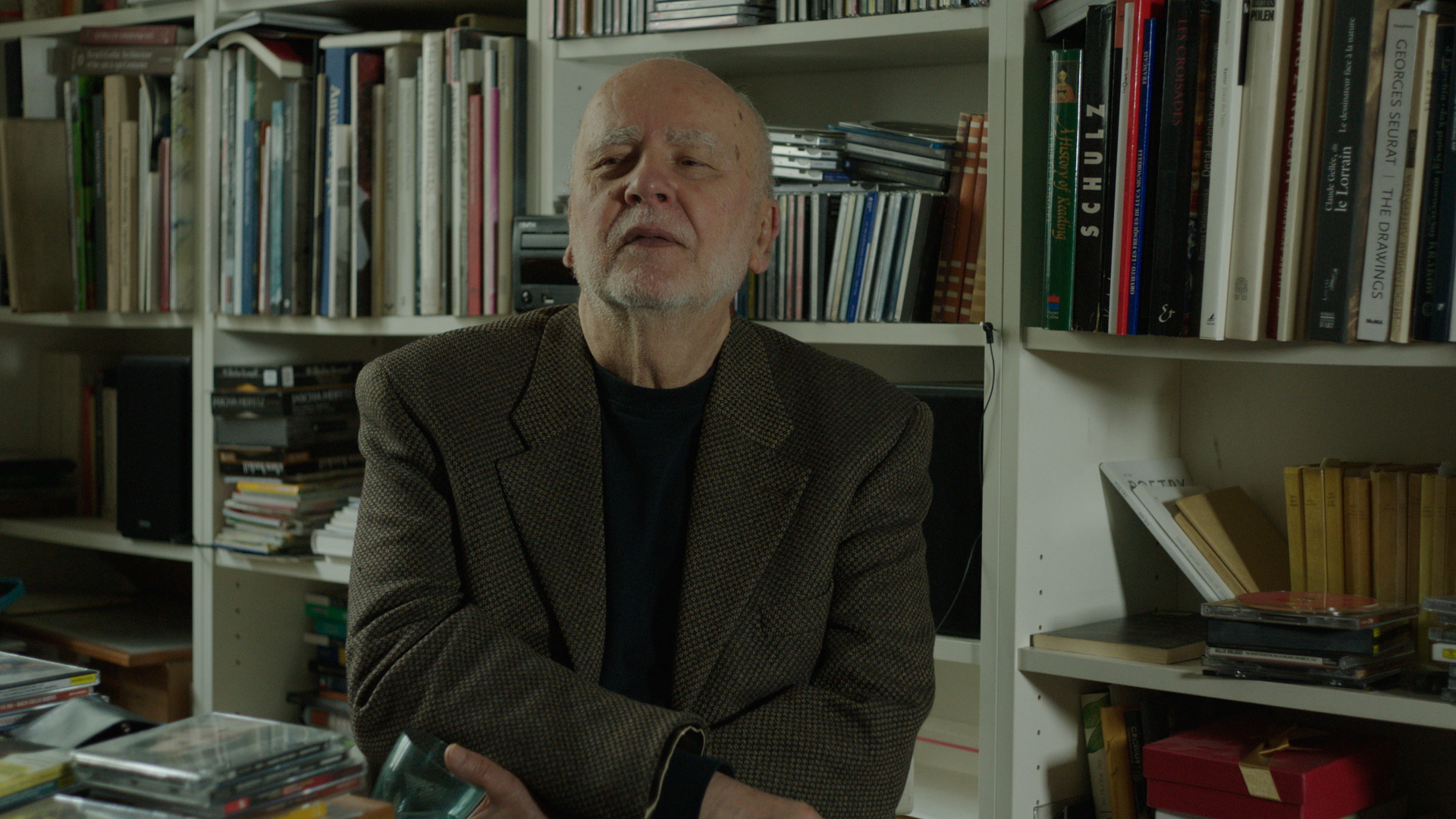NEXT STORY

A childhood shielded from life's horrors
RELATED STORIES

NEXT STORY

A childhood shielded from life's horrors
RELATED STORIES


|
Views | Duration | |
|---|---|---|---|
| 1. Born in dichotomous times | 215 | 04:07 | |
| 2. Family life in Silesia | 86 | 02:17 | |
| 3. Losing Lwów, gaining Gliwice | 76 | 03:28 | |
| 4. A week-long exodus by train from Lwów to Gliwice | 64 | 03:02 | |
| 5. The inscrutable world of radio transmitters | 59 | 03:17 | |
| 6. A childhood shielded from life's horrors | 56 | 04:49 | |
| 7. Gomułka's big rally | 63 | 01:33 | |
| 8. Gliwice – a provincial but vibrant town | 57 | 01:53 | |
| 9. The magic of reading | 70 | 02:40 | |
| 10. A new climate dawns | 57 | 05:03 |

Zaczyna się rozdział numer dwa czyli Gliwice, gdzie mieszkałem do matury. Prawie nie wyjeżdżałem – wyjeżdżając na wakacje jedynie jakieś krótkie, krótkie wyjazdy, ale w zasadzie to jeszcze... to nie był taki czas, żeby się bardzo dużo jeździło po Polsce, więc to jest... to osiemnaście lat prawie gliwickich. I normalny proces... to znaczy w miarę normalny proces edukacyjny – ze szkołą podstawową, gdzie pamiętam nauczycielkę pierwszą, tych pierwszych klas, która mówiła trochę po śląsku, lepiej po śląsku niż... To znaczy nie była to całkiem poprawna polszczyzna, ale dajmy jej spokój w jej grobie. Mój ojciec został... tak jak się spodziewał, pracował na politechnice i robił tam pewnego rodzaju karierę, bo w końcu został profesorem, prorektorem, dziekanem, więc jak na warunki... na warunki PRL-u to radził sobie i nawet myślę, że miał poczucie sukcesu. Ale jednocześnie tutaj jest jakby inna zupełnie też sprzeczność, mianowicie z jednej strony był... miał te osiągnięcia, wydawał książki techniczne. Pamiętam, jak mnie już wtedy książki fascynowały i ojciec wydał kilka książek, właśnie na przykład gruby tom pod tytułem Nadajniki radiowe, ponieważ to była jedna z jego specjalności. To znaczy na początku główna jakby specjalność i ja nie mogłem nic zrozumieć z tej książki, bo ona była bardzo specjalistyczna, ale byłem dumny, że jest książka. Byłem... intrygowały mnie to, że to są nadajniki radiowe, bo lubiłem radio od początku. Lubiłem bardzo radio, a wydawało mi się takim niezwykłym kontaktem z innym światem. Było to zielone oko, które powiększało się i gasło, były fale krótkie, były jakieś dziko zagłuszane audycje Radia Wolna Europa i trochę mniej zagłuszane audycje BBC i ja byłem dumny, że mój ojciec pisze o nadajnikach radiowych, a to właśnie... Chociaż nic z tego nie mogłem zrozumieć. Tam było dużo równań matematycznych. Ale jednak radio, tak że to...
Chapter two begins here, namely with the time I spent in Gliwice where I lived until I finished high school. I hardly travelled anywhere – if I did go away, it was only on short trips but at that time, people didn't go on lots of journeys even around Poland, so I had almost 18 years of Gliwice. And there was the normal routine – I mean, almost normal educational routine – of primary school where I remember my first teacher of those early classes who spoke a little Silesian, in fact her Silesian was better than… I mean, she didn't speak entirely correct Polish, but let's leave her to rest in peace in her grave.
My father, as he'd anticipated, was employed by the polytechnic and had a career there. He became a professor, vice-rector, dean, so considering what life was like then in the Polish People's Republic he coped reasonably well, and I believe he felt he was succeeding. And yet, there's a different sort of contradiction here. On the one hand, there were his achievements: he was publishing technical textbooks. I remember how I was already fascinated by books and my father had published a few, for instance, a thick volume called Radio transmitters since that was one of the areas in which he specialised. Initially, that was his main area of specialisation, and I understood nothing of that book since it was so very specialised, but I was proud that it existed. I was intrigued by radio transmitters because I'd always liked the radio. I liked it very much and I imagined it provided an extraordinary contact with another world. There was its green eye which would expand and then die, there were short waves, there were broadcasts by Radio Free Europe which were heavily jammed, and there were broadcasts by the BBC which weren't jammed quite so much, and I was proud that my father was writing about radio transmitters... although I couldn't understand a thing, there were a lot of mathematical equations there.
Adam Zagajewski (1945-2021) was a Polish poet, novelist, translator and essayist. He was awarded the 2004 Neustadt International Prize for Literature, the 2016 Griffin Poetry Prize Lifetime Recognition Award and the 2017 Princess of Asturias Award for Literature. He is considered as one of the leading poets of the Generation of '68 or the Polish New Wave (Polish: Nowa fala) and is one of Poland's most prominent contemporary poets.
Title: The inscrutable world of radio transmitters
Listeners: Andrzej Wolski
Film director and documentary maker, Andrzej Wolski has made around 40 films since 1982 for French television, the BBC, TVP and other TV networks. He specializes in portraits and in historical films. Films that he has directed or written the screenplay for include Kultura, which he co-directed with Agnieszka Holland, and KOR which presents the history of the Worker’s Defence Committee as told by its members. Andrzej Wolski has received many awards for his work, including the UNESCO Grand Prix at the Festival du Film d’Art.
Tags: Gliwice
Duration: 3 minutes, 17 seconds
Date story recorded: March 2018
Date story went live: 25 April 2019